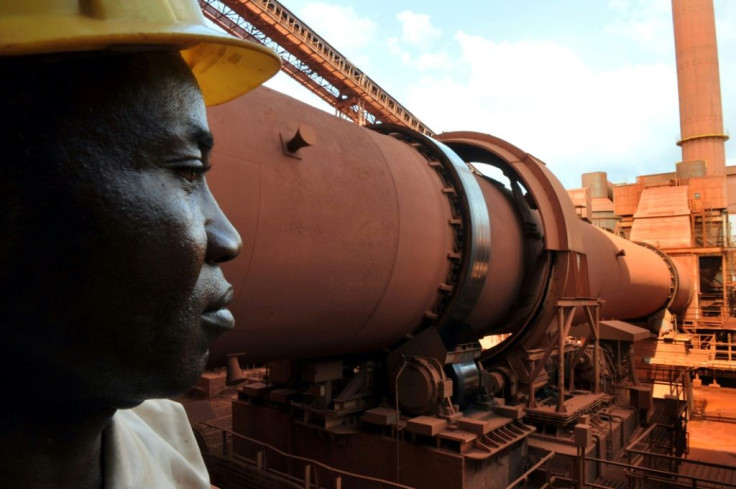Mining Execs Hold 'Promising' Talks With Guinea Strongman
Mining executives in Guinea said they were reassured on Thursday after meeting Lieutenant-Colonel Mamady Doumbouya, who seized power in a coup in the mineral-rich West African country this month.
The putsch on September 5 drew international condemnation, and also sent the price of aluminium soaring. Guinea is one of the world's largest producers of bauxite, the ore used to make aluminium.
An official working in Guinea for Russian aluminium giant Rusal told AFP that talks between Doumbouya and mining executives in the capital Conakry on Thursday had been "promising".
"Everything is stable, business is going on," he said. "It's just a transition period we are going through."
The meeting was part of a series of talks between the junta, politicians and civil-society leaders, which are due to end on Friday and are intended to pave a return to civilian rule.
It also came as West African leaders were meeting in Ghana's capital Accra to decide how to respond to the coup.

Doumbouya has promised to form an inclusive government that will steer a transition to civilian rule. But he has resisted committing to a timetable.
He also sought to reassure an alarmed mining industry after the coup, promising to uphold existing agreements.
Doumbouya repeated this message at the closed-door meeting with the executives, according to Alexander Alferink, an attendee who works in the gold industry.
"We were very comforted by the continuity," he said.
Fode Konate, a gold-mining executive, also said that Doumbouya had guaranteed to protect the security of mining operations.
Despite abundant reserves of iron, gold, diamonds and bauxite, Guinea remains one of the poorest countries in the world. Mining is the driver of the economy in the nation of 13 million people.
© Copyright AFP 2024. All rights reserved.











